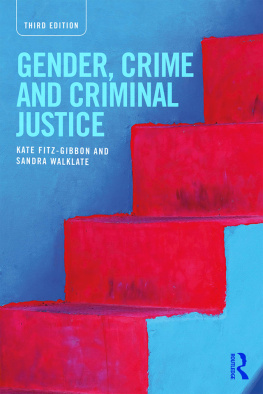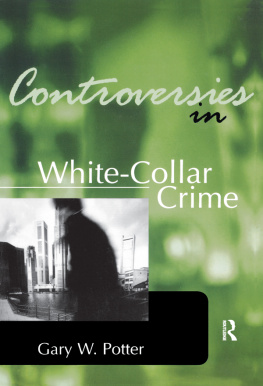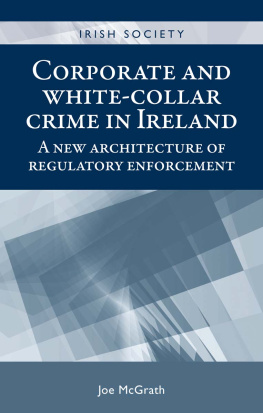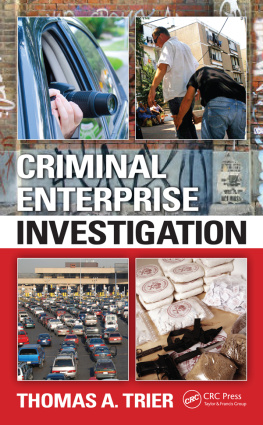Issues involved in the description and study of white-collar crimeloosely defined as those offenses committed by persons in government, business, and the professions in their occupational rolesare marked at the moment by their tentative, uncertain condition. White-collar crime provides material that is often absorbing, tantalizing, offensive, and intellectually challenging. The issue of proper treatment for white-collar criminals is but one of a range of items capable of arousing intense debate and disagreement. White-collar crime raises questions that confront and seriously challenge sociological and psychological views regarding the cause of criminal behavior. Studies of white-collar crime provide material for penetrating appraisal of the moral and ethical standards of our society, and for reexamination of ideas regarding the relationship between a social structure and the behavior of persons involved in it.
Readers of the following selections will likely be impressed by the rather cozy fellow-feeling that exists among many of the contributions reprinted here, with numerous citations being to readings also reprinted in the volume. In fact, readers may enjoy noting as they proceed how writers of later articles select conclusions from earlier pieces which fit their purposes, and how they rephrase conclusions to provide empirical or speculative fuel for issues which concern them but which might not have been of as much importance to the prior writer, who touched upon them only obliquely. The relatively delimited nature of material at the moment means that the literature of white-collar crime can rather readily be comprehended, its viewpoints absorbed, and its boundaries and border disputes distinguished and addressed.
This encapsulated state of affairs is not likely to last for long and it was for this reason, in addition to the intrinsic value and interest of the subject, that it appeared particularly desirable to bring together basic materials regarding white-collar crime which have been published in the United States and Great Britain, the two jurisdictions where such studies have most systematically been carried on.
Increased public focus on white-collar crime is clearly foreshadowed by President Johnsons special message on crime to Congress in February, 1967. Mr. Johnson had earlier appointed a groupthe Presidents Commission on Law Enforcement and Administration of Justiceto investigate street crimes and acts of violence and depredation that had pushed the subject of crime into the political arena as a major campaign issue during 1964. Despite the circumscribed nature of its charge, the Commission felt obliged to extend its investigation into the area of white-collar crime in order to place its findings and recommendations into proper perspective. Taking note of one of his Commissions conclusions, the President told Congress: The economic cost of white-collar crimeembezzlement, petty theft from business, consumer frauds, antitrust violations, and the like-dwarfs that of all crimes of violence.
In the same vein, James V. Bennett, in a message marking his retirement after thirty-four years as director of the Federal Bureau of Prisons, predicted growing concern with white-collar crime as he reviewed those things which he believed would take place in crime control in the coming years:
The criminal laws of the Federal government and the states can be expected to bring about many changes that will in the future affect our corrections system just as they have in the past. It is likely that the trend toward more Federal involvement in crime control will continue and that more and more offenders will be brought within the purview of Federal statutes. But the emphasis can be expected to shift sharply, and much more will be done to control white-collar crime. Even now, according to competent criminologists, white-collar crime composes the vast bulk of our crime problem. Its large mass lies unseen and iceberg-like below the lesser bulk of such visible crimes as auto theft, bank robbery, burglary, and the like. A recent study, for example, indicates that less than one out of ten embezzlers is ever reported to the police or brought into court for prosecution. Other studies suggest that only a tiny fraction of the crimes of fraud ever come to official attention. Our burgeoning economy will greatly enlarge the possibilities for white-collar crime, and we will have to make energetic efforts to prevent its spread.








